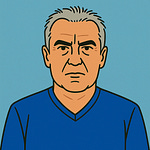In this first part of a two-episode series, hosts Barry Richards and Mustafa Selek dive deep into the complex phenomenon of lone actor terrorism and violence. Mustafa shares insights from his intensive research, beginning with why researchers prefer the term "lone actor" over the media-driven "lone wolf" label—a distinction that goes beyond semantics to address how language can inadvertently glamorize and inspire copycat attacks.
The conversation explores the distinctive characteristics of lone actors compared to group-based terrorists: they tend to be older (averaging 33 years), overwhelmingly male (95%), well-educated but professionally underachieving, and dramatically more likely to have diagnosed mental health conditions. Mustafa explains how these attacks are fundamentally expressive rather than instrumental—acts of distorted communication seeking public reaction rather than practical goals.
The hosts examine the psychological patterns preceding attacks, with Mustafa describing lone actors as "pressure cookers" experiencing mounting psychological stress and increasing isolation. This creates a dangerous cycle of withdrawal and radicalization, often accompanied by "leakage behaviors" where perpetrators signal their intentions—contradicting the myth of sophisticated predators operating in complete secrecy.
Barry brings compelling data showing that psychotic violence claims more lives in Britain than terrorism, with an average of one person killed weekly by someone in a psychotic state. The discussion reveals systemic failures in mental health services, where many perpetrators had prior contact with support systems that failed to intervene effectively. This leads to a critical examination of the tension between individual freedom and public safety in mental health care.
The episode concludes with Mustafa proposing a reconceptualization of the threat—moving beyond traditional security approaches to view it as a public health challenge requiring dual-track intervention: specialized services for those exhibiting concerning behaviors and upstream preventive measures addressing root causes like social isolation and untreated mental health conditions.
This first part lays the groundwork for understanding lone actor violence patterns. In Part 2, the hosts will explore deeper psychoanalytic perspectives on prevention and intervention strategies.
About Metapolitics
Metapolitics is the podcast that reaches the parts of politics that other podcasts can't reach. Hosts Barry Richards and Mustafa Selek dig deeper into the background or underground issues - exploring the psychological and cultural forces that shape politics but often remain unseen in day-to-day political life. Through thoughtful conversations with experts and between themselves, they examine the meta-dimensions that influence our political landscape and collective decision-making.










